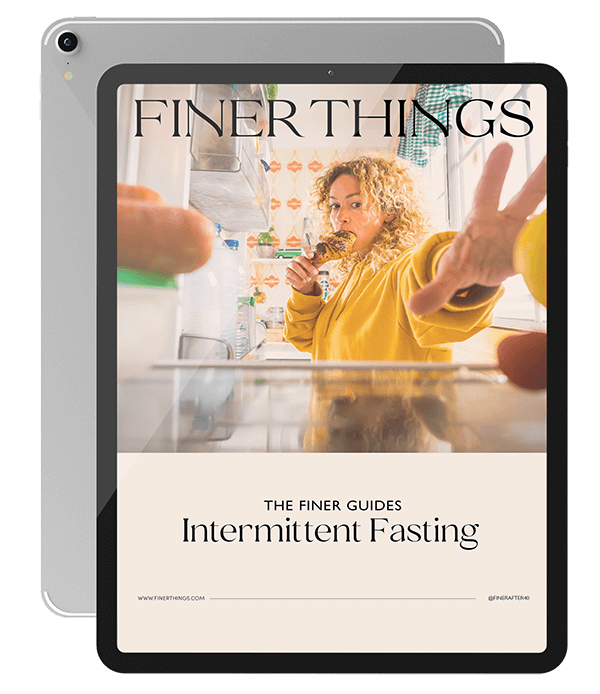Protect & Grow Your Wealth at Any Age

By Paula Bennett
Do you want to protect and exponentially grow wealth?
Do you plan to have significant savings, assets, inheritances, divorce settlements, or money from the sale of the business or real estate?
You have a friendly lifestyle, and you want to keep it, right? Maybe you want to travel? Buy a second home? Leave money to your millennial children? Take the whole family on an Alaskan cruise for summer vacation?
On the other hand, if you have no savings, don’t worry, we’ve got a plan for you. Read our article How to Save When You Have No Retirement Funds. It is not too late to start saving money.
Many of you are working with excellent salaries, benefits, and stock options. Some have gotten divorced. Others have lost money because they didn’t understand what they were investing in or they hired unscrupulous investment advisors. Others lent the money to relatives who made a bad investment. You’ve learned. You want to get it right from now on.
The Current State of Affairs about Women and Wealth in the United States
Would you be surprised to know that women control nearly 60% of the wealth in the United States? The number of wealthy women in the United States is growing twice as fast as many rich men. Women represent more than 40% of all Americans with gross investable assets of $600,000.
45% of American millionaires are women, and women control 48% of the estates worth more than 5 million (compared to 35% owned by men).
Contrary to popular belief, 60% of high-net-worth women have earned their fortunes. No one gave it to them. They earned it.
Most importantly, women control 80% of consumer spending.
You’ll be happy to know that by 2030 women will control two-thirds of the nation’s wealth. Accordingly, almost half of women in the United States are the primary breadwinners in their households, a fourfold increase since 1960.
Armed with all that crucial information, what should we be doing about it?
Start with watching the movie $avvy by Robin Hauser, an award-winning director of documentary films at Finish Line Features. $avvy studies cultural habits and norms and explores why women must take an active role in managing personal finances. Learn more here.
“If you know someone, who needs to wake up and snap out of this idea that one’s money problems will one day magically go away, this is the film to show them. “- Alan NG, Film Threat

Where to Learn
Educate yourself. Luckily, it’s much easier than you think.
According to Fidelity, only 20% of women surveyed felt they were prepared by their parents to manage their finances. Many were not taught money management or financial courses in high school or school. Parents often and still may discourage conversation about money.
Don’t worry; you can figure out pretty quickly how to secure your financial freedom now and forever. It isn’t that complicated. It can be effortless.
The best way to build confidence is by educating yourself. Becoming financially literate is not that difficult to do, especially in times of the pandemic. Online courses, podcasts, and other forms of online learning are more available than ever before.
Community college
If you want to learn a person, look at your community college course schedule. There will be numerous classes on accounting, financial literacy, and investing.
Online classes
if you want to learn online, Coursera alone has more than 300 classes on investment.
Most colleges now have online classes teaching financial literacy: Stanford University, Texas Tech University, George Washington University, Syracuse University, and the University of Montana, to name a few.
Visit Charles Schwab, Vanguard, Fidelity, Wealthfront, Betterment, and virtually any financial institution’s online courses that can educate you. Each has a plethora of information on their websites, and classes you can attend in person or over zoom.
Ellevest Ellevest is a Robo-advisor investment platform and financial literacy program primarily for women. It has classes, personal advisors, and one on one coaching.
Television, Newspapers, and Books
For a daily infusion of financial literacy, add finance-focused media to your daily habits.
Get Daily Finanical News Coverage
Subscribe to Wall Street Journal for Market and Finance coverage and Andrew Russ Sorkin’s Deal Book through the New York Times.
Watch Consuelo Mack of WealthTrack, a PBS Television show airing on Sunday nights. She interviews top financial people and the world and asks them questions, and elicits information understandable by the fundamental investor.
Read books on financial literary. Our favorite starting place is Carrie Schwab’s Guide to Finances After 50. Carrie is a leader of the Charles Schwab Foundation, a non-profit teaching financial literary, and has worked on the Presiden’t Advisory Council on Financial Capabilty. She holds FINRA security registrations which authorize her to sell securities (like stocks and bonds) and is a certified financial planner through CFP. For more insights from Carrie check-out Ask Carrie.
Once you’ve read that, read our other favorites.
→ Smart Women Finish Rich by David Bach
David is a financial advisor with regular contributions to the Today Show’s Money 911 segments and prior vice president of Morgan Stanley financial service company.
→ Wealth: Grow It and Protect It by Stuart E. Lucas
Stuart is a Chartered Financial Analyst and Harvard MBA that worked with Wellington Management Company and Banc One (now JP Morgan Chase).
As you complete these and look for other sources, be sure you review the author’s academic and professional background to ensure they have adequate expertise to be advising you. In particular, look for certifications from trusted organizations like the CFP.
Don’t Abdicate Your Financial Decisions To Men They Don’t Know Much Either
You put MEN in charge of your money before, father, husband, brother, or that uncle. How did that turn out for you?
One of the things pointed out in $avvy is that many women abdicate their financial planning to men. Whereas that can be fine for many women, we have all heard the horror stories about what happens when a husband has a heart attack or runs off with his yoga instructor.
Many don’t even know how much money their husband makes. They have no true idea what the financial situation is. Even others don’t know what their mortgage payments are. Many get very surprised that this can be a massive problem should your marriage not work out.
Know what your income expenses, savings, and debt are
Do you know if you have a savings account? Bank accounts? Do you have copies of the statements and the account numbers? Do you know what your credit score is?
Get The Finer Life
Our Sunday email has tips and content you will love – exclusively for our subscribers.
"*" indicates required fields
Does your partner has life insurance? Who manages credit card debt?
These questions are uncomfortable for many, but you have to know the answers.
Know your retirement plan
The easiest way to set aside retirement savings is to set it on autopilot. Through your employer, have funds automatically deducted and have your checking account go automatically into your investment account. It’s easier without it in your hot little hands. You won’t even miss it. Make sure after consultation with your professional advisors that you have maxed out all of your retirement contributions. Do you know where all your retirement accounts are, and what are they invested in?
Set aside other savings
Depending on your financial situation, it may be appropriate to follow the 70/20/10 rule of budgeting, where you separate your take-home pay into three buckets based on a specific percentage. Seventy percent of your income will go to monthly bills and everyday spending, 20% goes to saving and investing, and 10% goes to debt repayment or donation.
Others may want to follow the 50-20-30 rule technique that divides your paycheck into three categories: 50% for the essentials, Rent and other housing costs, groceries, gas, 20% for savings, and 30% for everything else.
If you’re a person whose income or business doesn’t depend on paychecks, best to consult your accountants to determine the amount of cash to set aside for savings.
Assemble your Financial Team: Hire the Right Advisors.
How do you even find them?
If you open an account at any central financial institution, they will have a list of referrals, accountants, lawyers, bookkeepers, and insurance agents. This is an excellent place to start.
As a next step, consult your friends. The ones that have good jobs, live modestly, and are thriving. Once you find one financial advisor, they can give you referrals to others. Look at the websites. Examine their academic work credentials. Ask for referrals. Go with your gut.
Certified Financial Planner
Financial planning is the most important thing you can do. Choose a good financial advisor who can give you competent financial advice. If you want a great financial future, it’s essential to meet with a financial planner and get excellent advice.
She can help you examine your spending habits and create a budget that will help you meet your goals. Are you asking yourself, “What are financial planners charging on an hourly basis?” Don’t be penny wise and pound foolish about her fees. Whenever she charges, you earn back 100 times over in the money you will save taking her advice. She can help you meet your financial goals and have a successful financial life.
Banker
Best to develop a relationship with a local banker. She can be a wealth of information and a good source of referrals.
Lawyer
She can be an invaluable advisor to you. Your lawyer can be instrumental in referring you to other financial experts and examining your legal agreements.
Your lawyer is essential to other elements of your financial health, namely estate planning. Read more about your lawyer’s role here.
Accountant
Your accountant is another valuable member of your team. Get a copy of your tax return and make sure you understand. Have her explain it to you. So many women sign the return without ever reading it or understanding the financial implications. If you don’t understand, ask. Over time, you’ll have a better handle on what’s happening on the page.
Wealth Manager
You may or may not need this.
Many wealthy Americans take the advice of Warren Buffett and put their money in no-load index funds, which mirror the market, thereby reducing risk.
However, for higher returns, put your money to work for you. Know what you are invested in and know what return you are getting. Believe it or not, it can be simple to diversify your investments in low-cost index-based funds. Don’t let people talk you into things you don’t understand. Ask them what the fees are and whether there are incentives for them to suggest certain investments to you.
Many financial institutions such as Schwab Vanguard and Fidelity charge either no or low fees for this service. Alternatively, financial institutions such as First Republic Bank also have wealth managers available for low fees.
Insurance agent
Hiring a proper insurance agent for your house, car, personal liability umbrella liability, and health insurance is an integral part of protecting your wealth. Consult with your insurance advisor once a year to make sure that all of your insurance is updated. Make sure that both you and your agent have copies of your insurance policies.
With all your advisors, Don’t be afraid to ask lots of questions.
Make sure that you keep asking questions till you understand everything. Hire advisors that are patient enough to explain everything to you. If they refuse to explain things to you or tell you “that’s something you don’t need to know about,” or better yet, say, “don’t worry your pretty little head about this,” go ahead and fire them immediately. Listen to your gut. Building a long-term relationship on mutual respect is vital.
Have an emergency fund
One thing the pandemic taught us is that everything, all your income, can come to a dead stop. Frighteningly, more than half of Americans have less than three months’ worth of expenses in savings. Hopefully, you will not be one of those people. After consulting with your financial planner, it is likely they will recommend that you have at least one year’s expenses saved away for that rainy day. Your financial planner and accountant can give you further ideas on this.
Don’t pay off low-interest debt.
Do you or your loved ones have student loans? Don’t be in a rush to pay those off because interest rates are very low.
Real estate loans? Consult your lender on the best rates. A little-known fact is that many of the smaller financial institution’s rates are negotiable depending on whether you have monies invested with their private wealth vision or large amounts of cash sitting in a checking account. This may or may not be part of your investment strategy again better to consult with your other professionals about whether this is a good strategy.
Currently, interest rates are so low and may be deductible against your income. With the recent increases in the stock market, it may make sense to keep your money in the market and not pay off a real estate loan that is 3%. The notion that “I own my house free and clear “is an outdated concept. Financially savvy people do not pay off debt. They leverage their assets and take their cash for high-performing assets. That’s the reality.
This is very individual. It depends on your risk tolerance, and it is for further discussion with your financial advisors.
Take Advice From Nonprofessionals With A Grain Of Salt
We’ve all heard the stories. You come to the cocktail parties where people are bragging about investment. All the people that invested with Bernie Madoff learned one lesson. If it sounds too good to be true, it is. Resist the opinions of the nonprofessionals. Steady strategic investing wins the race.
Don’t Lend Money To Friends, Relatives, or Partners
Many intelligent people just have a standard sentence ready to go whenever they are asked by a relative or friend to borrow money. In story after story, two things always happen: you never get the money back and your relationship with that person changes dramatically (not for the better).
Haven’t you heard the story about the woman who lent $1000,000 to a financially desperate girlfriend only to find out a year later that the girlfriend had taken her entire family on a European trip? We have.
Don’t make a habit of loaning money out, and if you need to, do so with the advice and support of informed professionals so you have any necessary protection in place.
Now, you’re a little more informed, but finances are a complex topic. Don’t get overwhelmed tackling everything today. Start small, and improve your financial status step by step. Good luck with building your financial empire; I know you’ll do it.
The Content is for informational purposes only, you should not construe any such information or other material as legal, tax, investment, financial, or other advice. Nothing contained on our Site constitutes a solicitation, recommendation, endorsement, or offer of any third-party service provider to buy or sell any securities or other financial instruments in this or in any other jurisdiction in which such solicitation or offer would be unlawful under the securities laws of such jurisdiction.
All Content on this site is information of a general nature and does not address the circumstances of any particular individual or entity. Nothing in the Site constitutes professional and financial advice. You alone assume the sole responsibility of evaluating the merits and risks associated with the help of any information or other Content on the Site before making any decisions based on such information or other Content. In exchange for using the Site, you agree not to hold FT its affiliates, or any third-party service provider liable for any possible claim for damages arising from any decision you make based on information or other content available to you through the Site.
The above content may contain affiliate links. When you click and shop, we receive a small commission to support our writers.

Want a Free Guide?
You will receive our free 19-page guide and access to our exclusive content, private invitations, and tips you’ll love.
"*" indicates required fields
Facebook Group




